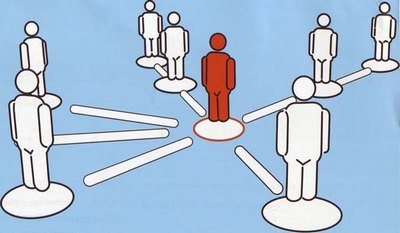
What is Internal marketing? Describe Internal marketing strategy?
Internal Marketing
December 31, 2017 By Hitesh Bhasin Tagged With: Marketing
Internal marketing is the internal promotion of a company’s mission, goals, products, and services with the employees and staff members with an objective to help employees understand the organization better and optimize employee engagement.
The goals and intentions of the internal marketing efforts of companies are quite different than their external marketing campaigns. By running external campaigns, companies expect to widen market presence, generate leads, and boost sales while via internal marketing campaigns, companies optimize employee engagement, employee awareness, and employee brand advocacy.
Table of Contents
What is Internal Marketing?
Definition: Internal marketing is defined as a type of marketing used for promoting the company’s objectives, vision, goal, values, and culture internally within the organization and among the employees.
In internal marketing, the company treats its employees as internal customers. The company ensures its employee’s well-being. Hence internal marketing depends on the internal customer’s experience in the organization.
Human resources are the main component when it comes to internal marketing. This is for the fact that human resources are responsible for the employee. Through proper communication, it becomes easy for the company to impart adequate training to their staff. Hence resulting in the employees achieving the desired goals.
Importance of Internal Marketing
External marketing helps in achieving the company’s goal through brand awareness and sales. In comparison, internal marketing promotes the company’s values among the employees that help achieve success.
It is one of the most effective ways to earn employees’ enthusiasm about the brand. Such employees are more motivated in increasing their productivity, plus they communicate with enthusiasm with the customers or clients and act as brand advocates. Internal marketing is one of the most important factors behind optimized employee engagement and retention.
Via internal marketing, an organization enjoys a competitive advantage by offering a consistent flow of information and talking points to their employees (in the form of the most current available information) which they can use while interacting with the target audiences or prospects.
All in all, businesses or organizations should incorporate internal marketing strategies to enjoy increased employee engagement that helps in meeting organizational goals. It also strengthens brand values among the employees and helps in empowering the staff, which assists in providing efficient service to the customers.
Internal Marketing Efforts that Companies can Use
Organizations of any size can implement an internal marketing campaign. One has to focus on training their employees. So that it results in making the employees more efficient in their work, it is natural that when the employees have a positive experience, it will be passed down to the customer.
Given below are some of the Internal marketing tactics which the company should use-
- Find out the areas where the organization comes in contact with its market. Then make sure that the employees who come in direct contact with the customers be trained by the company properly
- Get feedback from the best performers about HR issues and the effectiveness of internal marketing strategies, as feedbacks are essential as it points out the area of improvement
- Use of the newsletter and related sources to spread the organization’s culture, vision, values, and goals
- Opening up the product or services to employees to use and get involved in for educating employees about company products or services
- At the time when employees are trained, impart them with the necessary knowledge on marketing strategy
- Any relevant information should be easily accessible, plus employees should be given incentives according to their performance.
- Conduct training programs for the employees at every level and encourage the employees to participate in the various organizational activities
- Highlight the success of the employee’s contribution and encourage collaboration among the department for better results
- Letting employees know that their contributions matter and are essential to the success of the company
Components of Internal Marketing
As internal marketing is the promotion of the brand or business within the organization, the following are some of its essential components that will let your employees and staffs believe in the brand and work as brand ambassadors-
1. Corporate strategy
A result-oriented cooperate strategy helps in narrating the company’s mission, values, and objective. It ensures the proper allocation of the company’s resources. With the help of the cooperate strategy, a company can help enhance the employee’s experience.
2. Trusting relationship
A good relationship between an employee and its management is important for internal marketing. Employees, when motivated, produce better that results in the company recognizing their efforts. Achieving this result requires a certain level of trust among the employee and management.
3. Effective Internal Communication
Communication plays a big part in internal marketing. Information should be clearly conveyed to the employees at all levels to ensure a speedy and better result. Miscommunication and refrain from sharing certain information could lead to an inefficient result.
4. Experience of the employees
Employees’ experience matters a lot and especially the newly-hired ones. Such employees should be inculcated with the company’s values, culture, and mission at the time of their training period. The positive experience ensures a better result from the employees.
5. Culture and Value followed in the workplace.
Culture and the values of a workplace have a direct impact on the employees. The employees will feel more motivated to do their work in a positive environment. Managers who appreciate the contribution of the employees ensure a good result from the overall department.
Role of Communication in Internal Marketing
Effective communication is a key to internal marketing. Due to the proper flow of communication, it becomes easier to translate the company’s vision and goal to the employee.
This results in aligning employees’ results to achieve the company’s objective.
However, to establish a proper flow of communication, a company should tackle the following challenges in the given area;
- Communication flow from the top management to the low-level associate
- Change in strategy due to employee feedback
- Encourage in engaging all the employees
- Measuring the internal communication performance on a regular basis
Who is involved in Internal Marketing
Internal marketing is a collective effort from the company to impart values to its employees. Almost all the employees are involved in internal marketing.
However, few key figures have to be involved in making the campaign successful such as-
- Human resource manager
- Marketing manager
- Brand manager
They are responsible for making internal marketing strategies, associated materials, and sharing the message internally within the organization to let the employees and staff be engaged and result-driven.
Benefits of Internal Marketing
Given below are the benefits of Internal marketing.
- Every employee feels a sense of responsibility due to their involvement. Hence ensuring a good result.
- Communication among the management and the employees becomes transparent.
- Employees’ contributions are valued.
- Improves employee’s work performance.
- Ingrain the company’s culture and values into the employees.
- Improved awareness.
How to make an Internal Marketing Strategy?
To get an excellent result, it is important to plan a systematic internal marketing strategy. Follow the given procedure for the successful implementation of the internal marketing strategy;
1. Building a team
To implement an internal marketing strategy, first, one needs to involve HR. This is because HR professionals are first in line when it comes to dealing with employees. Next include marketing and business professionals who have an understanding of the brand. One needs an individual who can properly communicate to the employees regarding work culture.
2. Evaluating Internal marketing strategy
Track the internal marketing that is already happening within the organization. Understand how it is working by keep track of its progress and assess all the necessary points. Evaluating the strategy is necessary to know its result. If there is any problem, one can make the necessary changes.
3. Collect data from marketing messages and training session
Collecting data is an important aspect of devising effective internal marketing strategies. One has to make sure that the company’s goal and the employees are on the same page. Receiving an employee’s personal opinion of the company’s product or service is necessary. During the training session, the company should be open to new ideas and criticism. This encourages the recruits to further participate in future company activities.
4. Involve everyone
The success of internal marketing depends on how much the employees are involved. Employee engagement is necessary for better results. The team should be aware of the current happening of the company.
5. Follow-up
Even after achieving a successful result from internal marketing, one has to be open to feedback. Impart necessary training and values to the employees. Conduct a meeting with the management to discuss how to get a more desired result. And lastly, keep the employees up to date on the company’s performance.
Examples of Internal Marketing Strategies
1. Internal Communications
Educating and imparting the company’s goals and values as well as internal information through marketing communications, promotional techniques, and public relations. Encouraging the free flow of communication and cooperation among the employees.
2. Employee Feedback Form
It is used to encourage employees to write feedback or put their suggestions by filling the feedback form. It develops a company culture in which everyone in the company feels that their perception and suggestion are valued by the authorities.
3. Brand Authenticity
It is used for aligning the entire organization to your brand mission and identity. It lets employees feel connected with your brand voice and hence they themselves act as brand advocates.
Different brands use such strategies as Dell focused on internal marketing to encourage its employees to get active on social media platforms and share content on behalf of the company.
It helped the brand in using its 10,000+ employees to engage as active marketers and sellers on different social channels.
Conclusion!
The employees must have confidence in their company. For that, the company should pass down all the relevant information to their employees. There should be a certain level of transparency that helps in eliminating any form of miscommunication.
Employees will feel motivated due to their active participation in the company’s initiative. When the team is aware of the current happening, it will prompt people to pour more effort into the current project.
To create loyal customers, the company has to work on the employee’s loyalty and trust. Through internal marketing, it becomes easier to impart the brand value of the company to the employees.
Now, before concluding the post, let us brush up on the key internal marketing efforts
- Making sure that all employees are well aware that their contributions are essential to the company’s overall growth
- Educating and training all employees about the products and services of the company and letting employees understand that customers are source of employees’ salaries
- Encouraging employees to share input on corporate policies, operation, and management and making sure that the corporate culture is consistent with work-life balance
- Channelizing communication and collaboration among employees through different methods





/GettyImages-8627419261-5a142e50beba330037b005fa.jpg)




